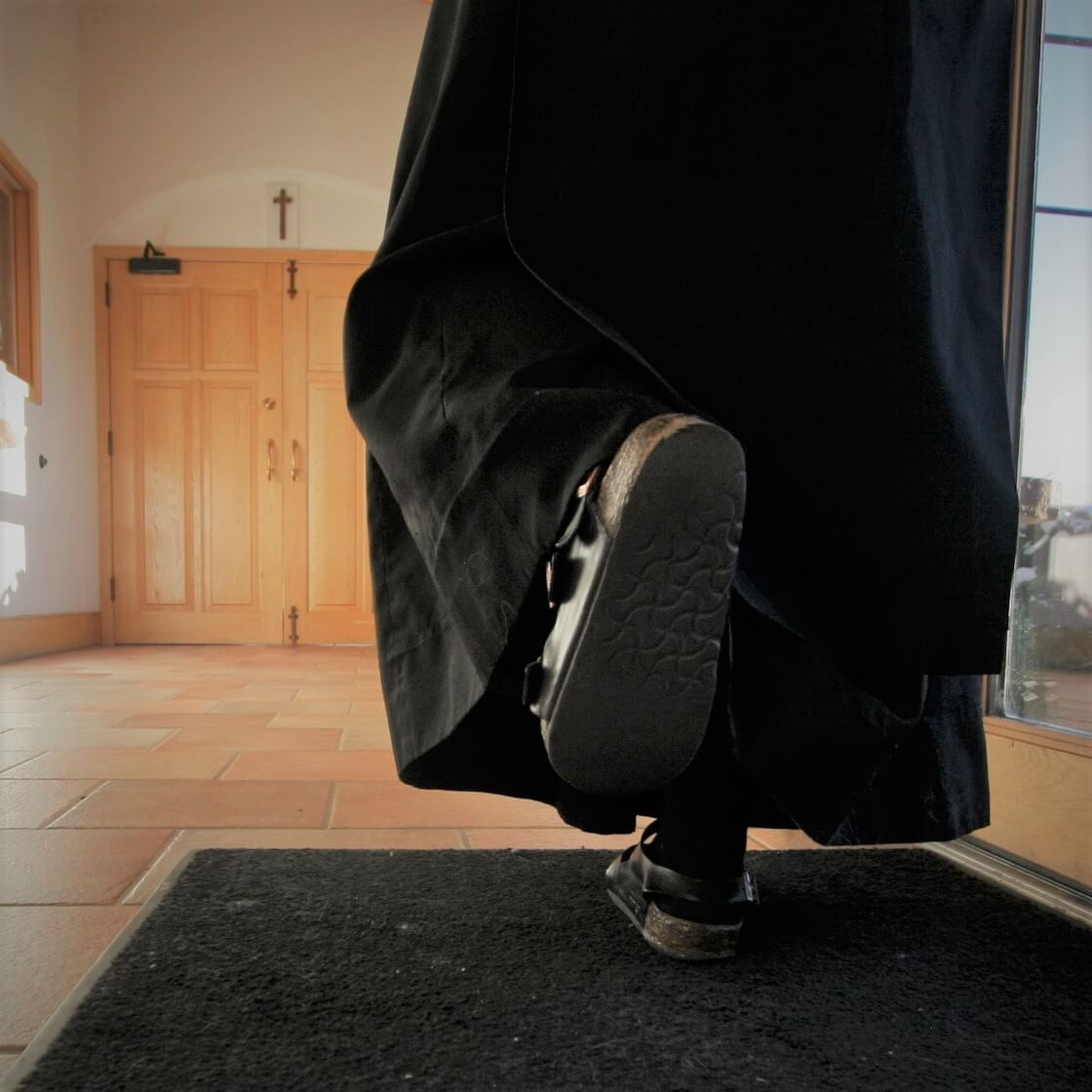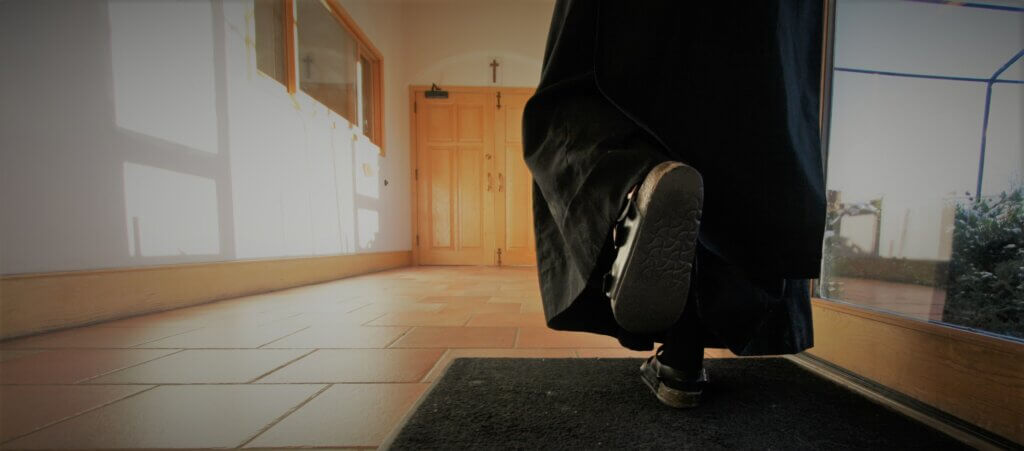A reflection for the Solemnity of the Nativity of St. John the Baptist by Mother Maria-Michael Newe, OSB
“The one who has the bride is the bridegroom; the best man, who stands and listens for him, rejoices greatly at the bridegroom’s voice. So this joy of mine has been made complete. He must increase; I must decrease.”
St. John the Baptist speaking of Jesus in John 3:29-30

Nuns of the Abbey of St. Walburga fishing at a nearby reservoir, reminiscent of John’s mission field: baptizing in the Jordan River
John the Baptist must have been a very humble man. Everyone surely knew the story surrounding his birth – how his father Zechariah became mute when he was serving in the temple because he did not believe the angel who told him about the destiny of his unborn son (cf. Luke 1:5-25), but regained his speech when John was born. Scripture says that, “then fear came upon all their neighbors, and all these matters were discussed throughout the hill country of Judea. All who heard these things took them to hear saying, ‘What, then, will this child be?’ For surely the hand of the Lord was with him” (Luke 1:65-66). But did John let this fame get to him? No. Instead, we know that he wore camel’s hair and survived on locusts and wild honey when he grew up! (cf. Mark 1:6). He stayed humble all his life, and pointed to Jesus when He came to the Jordan River to be baptized, telling his followers, “Behold, the Lamb of God, who takes away the sin of the world…the reason why I came baptizing with water was that he might be made known to Israel” (John 1: 29,31). And at the end of his life, when he was imprisoned for telling King Herod that it was wrong to marry his brother’s wife (cf. Mark 6:17-20), John had the humility to ask Christ for confirmation of His identity. “Are you the one who is to come, or should we look for another?” (Matt. 11:3). He wasn’t afraid to humble himself to find the right path. He wasn’t ashamed to admit that he wasn’t certain of the truth, and he had the courage to ask Jesus for help.
Humility is the work of a lifetime, and like John, we do not know the day nor the hour of our death. But if one strives to live humbly, he too will come to that “perfect love of God which casts out fear. And all those precepts which formerly he had not observed without fear, he will now begin to keep by reason of that love, without any effort, as though naturally and by habit. No longer will his motive be the fear of hell, but rather the love of Christ, good habit and delight in the virtues which the Lord will deign to show forth by the Holy Spirit in His servant now cleansed from vice and sin” (Holy Rule of St. Benedict, Ch. 7 on Humility).



